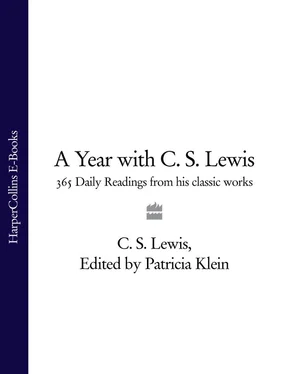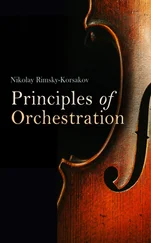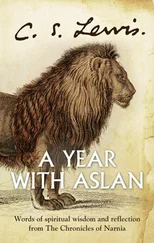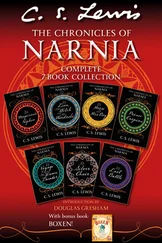19 Traveling Without a Map 19 Traveling Without a Map Now, Theology is like the map. Merely learning and thinking about the Christian doctrines, if you stop there, is less real and less exciting than the sort of thing my friend got in the desert. Doctrines are not God: they are only a kind of map. But that map is based on the experience of hundreds of people who really were in touch with God—experiences compared with which any thrills or pious feelings you and I are likely to get on our own are very elementary and very confused. And secondly, if you want to get any further, you must use the map. You see, what happened to that man in the desert may have been real, and was certainly exciting, but nothing comes of it. It leads nowhere. There is nothing to do about it. In fact, that is just why a vague religion—all about feeling God in nature, and so on—is so attractive. It is all thrills and no work: like watching the waves from the beach. But you will not get to Newfoundland by studying the Atlantic that way, and you will not get eternal life by simply feeling the presence of God in flowers or music. Neither will you get anywhere by looking at maps without going to sea. Nor will you be very safe if you go to sea without a map. —from Mere Christianity
20 Gradually the Truth Condenses … 20 Gradually the Truth Condenses … Theology, while saying that a special illumination has been vouchsafed to Christians and (earlier) to Jews, also says that there is some divine illumination vouchsafed to all men. The Divine light, we are told, “lighteneth every man.” We should, therefore, expect to find in the imagination of great Pagan teachers and myth makers some glimpse of that theme which we believe to be the very plot of the whole cosmic story—the theme of incarnation, death, and rebirth. And the differences between the Pagan Christs (Balder, Osiris, etc.) and the Christ Himself is much what we should expect to find. The Pagan stories are all about someone dying and rising, either every year, or else nobody knows where and nobody knows when. The Christian story is about a historical personage, whose execution can be dated pretty accurately, under a named Roman magistrate, and with whom the society that He founded is in a continuous relation down to the present day. It is not the difference between falsehood and truth. It is the difference between a real event on the one hand and dim dreams or premonitions of that same event on the other. It is like watching something come gradually into focus; first it hangs in the clouds of myth and ritual, vast and vague, then it condenses, grows hard and in a sense small, as a historical event in first century Palestine. —from “Is Theology Poetry?” (The Weight of Glory)
21 From Poetic Myth to Humble Fact 21 From Poetic Myth to Humble Fact The essential meaning of all things came down from the “heaven” of myth to the “earth” of history. In so doing, it partly emptied itself of its glory, as Christ emptied Himself of His glory to be Man. That is the real explanation of the fact that Theology, far from defeating its rivals by a superior poetry, is, in a superficial but quite real sense, less poetical than they. That is why the New Testament is, in the same sense, less poetical than the Old. Have you not often felt in Church, if the first lesson is some great passage, that the second lesson is somehow small by comparison—almost, if one might say so, humdrum? So it is and so it must be. That is the humiliation of myth into fact, of God into Man; what is everywhere and always, imageless and ineffable, only to be glimpsed in dream and symbol and the acted poetry of ritual becomes small, solid—no bigger than a man who can lie asleep in a rowing boat on the Lake of Galilee. You may say that this, after all, is a still deeper poetry. I will not contradict you. The humiliation leads to a greater glory. But the humiliation of God and the shrinking or condensation of the myth as it becomes fact are also quite real. —from “Is Theology Poetry?” (The Weight of Glory)
22 God’s Remedies 22 God’s Remedies And what did God do? First of all He left us conscience, the sense of right and wrong: and all through history there have been people trying (some of them very hard) to obey it. None of them ever quite succeeded. Secondly, He sent the human race what I call good dreams: I mean those queer stories scattered all through the heathen religions about a god who dies and comes to life again and, by his death, has somehow given new life to men. Thirdly, He selected one particular people and spent several centuries hammering into their heads the sort of God He was—that there was only one of Him and that He cared about right conduct. Those people were the Jews, and the Old Testament gives an account of the hammering process. Then comes the real shock. Among these Jews there suddenly turns up a man who goes about talking as if He was God. He claims to forgive sins. He says He has always existed. He says He is coming to judge the world at the end of time. Now let us get this clear. Among Pantheists, like the Indians, anyone might say that he was a part of God, or one with God: there would be nothing very odd about it. But this man, since He was a Jew, could not mean that kind of God. God, in their language, meant the Being outside the world, who had made it and was infinitely different from anything else. And when you have grasped that, you will see that what this man said was, quite simply, the most shocking thing that has ever been uttered by human lips. —from Mere Christianity 1959 Lewis attends the first meeting of the Commission to Revise the Psalms, at the invitation of Archbishop of Canterbury Geoffrey Fisher.
23 On Authority 23 On Authority There are three things that spread the Christ-life to us: baptism, belief, and that mysterious action which different Christians call by different names—Holy Communion, the Mass, the Lord’s Supper. At least, those are the three ordinary methods..… I cannot myself see why these things should be the conductors of the new kind of life. …. But though I cannot see why it should be so, I can tell you why I believe it is so. I have explained why I have to believe that Jesus was (and is) God. And it seems plain as a matter of history that He taught His followers that the new life was communicated in this way. In other words, I believe it on His authority. Do not be scared by the word authority. Believing things on authority only means believing them because you have been told them by someone you think trustworthy. Ninety-nine per cent of the things you believe are believed on authority. I believe there is such a place as New York. I have not seen it myself. I could not prove by abstract reasoning that there must be such a place. I believe it because reliable people have told me so. The ordinary man believes in the Solar System, atoms, evolution, and the circulation of the blood on authority—because the scientists say so. Every historical statement in the world is believed on authority. None of us has seen the Norman Conquest or the defeat of the Armada. None of us could prove them by pure logic as you prove a thing in mathematics. We believe them simply because people who did see them have left writings that tell us about them: in fact, on authority. A man who jibbed at authority in other things as some people do in religion would have to be content to know nothing all his life. —from Mere Christianity 1926 Lewis gives his first lecture as a don in the English School at Oxford, entitled “Some Eighteenth-Century Precursors of the Romantic Movement.”
24 Finding Comfort 24 Finding Comfort All I am doing is to ask people to face the facts—to understand the questions which Christianity claims to answer. And they are very terrifying facts. I wish it was possible to say something more agreeable. But I must say what I think true. Of course, I quite agree that the Christian religion is, in the long run, a thing of unspeakable comfort. But it does not begin in comfort; it begins in the dismay I have been describing, and it is no use at all trying to go on to that comfort without first going through that dismay. In religion, as in war and everything else, comfort is the one thing you cannot get by looking for it. If you look for truth, you may find comfort in the end: if you look for comfort you will not get either comfort or truth—only soft soap and wishful thinking to begin with and, in the end, despair. —from Mere Christianity
Читать дальше












